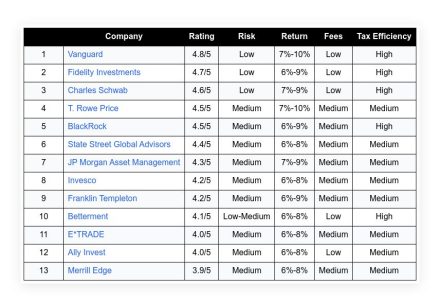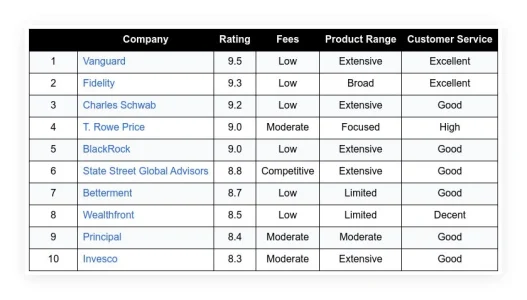When preparing for retirement, most people think about finances and the impact of age on their physical health. But not enough people think about the mental and emotional aspects of retirement. Finding a good therapist and attending therapy regularly can help you manage the mental and emotional side – but many new and prospective retirees don’t even know where to begin.
What does the average retiree need to know about therapy in retirement?
Table of Contents
ToggleTherapy in Retirement Is Important
Retirement makes a major emotional impact, whether you’re consciously aware of it or not. Leaving your full-time position has a cascade of different effects on your physical and mental health, including some you may not initially think of.
For example, some people view retirement as a total relief; they see their full-time job as an unfortunate burden they’ve had to bear all these years, and they rejoice upon leaving it. But they may not realize that the challenges presented to them in this job, the stable routine associated with the job, and the socialization opportunities available through the job all had a meaningful impact in helping them stay balanced and mentally healthy.
Sure, the job may have been stressful and aggravating at times, but it was still part of a valuable tradeoff. If that job disappears, and there’s nothing left to fill the gap, you could end up feeling lost, lonely, and unfulfilled – and possibly without understanding the reason why.
Other people retire only out of necessity or external pressure, and feel a sense of loss when they leave their jobs. For these people, the mental health impact is more noticeable and obvious; if you pursued this career for decades, it might feel like you’ve lost your sense of purpose.
Other Challenges Retirees May Face
On top of that, since retirees tend to be older adults, retirement is usually associated with a decline in physical activity, a decline in social activity, and new stressful challenges to face, such as managing retirement finances and dealing with the deaths of close friends and loved ones.
It’s not hard to see why depression is so prevalent among older adults. Even if you’re not clinically depressed, you may feel a sense of loneliness, isolation, loss of fulfillment, or directionlessness. And if you manage to evade those unfortunately common feelings, you may deal with other mental health issues like anxiety, or specific disorders like obsessive-compulsive disorder (OCD).
Whatever mental health struggles you’re dealing with, therapy has the potential to help. In therapy sessions, you’ll work with a professional who can help you clarify and understand the issues you face and guide you with meaningful feedback and exercises. In the span of just a few sessions, most people see meaningful improvements to the quality of their emotional lives – and if you’re willing to stick with the program, you can eventually beat or learn how to manage whatever ails you.
Finding a Therapist in Retirement
Finding a therapist is easy, but finding the right therapist for your needs may present some challenges. Using a simple online search tool, you can find a host of different therapists in your area. And if you’re willing to attend online therapy sessions, you’ll have even more options to choose from.
The trick is to find a therapist you really click with. Unfortunately, that might require attending sessions with multiple different therapists, as it’s hard to gauge a person’s therapy style with written descriptions alone. Still, if you do even a few minutes of research, and you’re willing to change therapists periodically until you find a good fit, you should eventually find someone who serves your needs.
Pay especially close attention to:
Availability
Obviously, you’ll need to find someone who’s readily available. If you’re going through a mental health crisis, or even just a difficult time, you can’t afford to wait for someone to have an opening in their cramped schedule. Additionally, you’ll need to think about whether this therapist is available for in-person sessions, online sessions, or both. Online sessions can be just as impactful as their in-person counterparts for most people, but if you have a strong preference, there’s nothing wrong with leaning one way over the other.
Expertise
Some therapists have dedicated areas of specialty. While most cognitive therapists can tackle common, generalized issues like anxiety and depression, you may want to visit an expert if you’re dealing with a specific disorder, or unique mental health challenges.
Experience
Take a look at experience level as well. While new therapists can often provide immense value, more experienced therapists have had more time to hone their craft. What’s more is they may also be able to offer you a superior experience overall.
Disposition
In your sessions, you’ll also need to pay close attention to disposition and personality fit. If you don’t click with your therapist, for any reason, you probably won’t be able to get the most value out of your sessions. Therapists fully understand this and won’t take it personally, so if you can’t connect with your therapist, for any reason, don’t be afraid to leave and try another.
Planning for Mental Health Expenses
Isn’t mental health care expensive?
In some ways, yes. But thanks to changing attitudes about mental health, as well as evolving legislation, mental health care is more available and affordable than ever before. It’s a legal requirement for (most) health insurance policies to offer mental health care coverage proportionately equal to their physical health care coverage. Medicare, for example, covers a wide variety of mental health care needs. As long as you have some kind of health insurance in place, mental health care should be quite affordable. And, this is including regular therapy sessions.
Session costs and copays: Most modern health insurance policies cover most of the costs associated with your sessions. This leaves you to paying only a small copay, which is usually $20 or $30 per session. Your insurance policy may have a limit on the number of sessions you can have within a given period of time.
Prescription medication costs: Some mental health conditions can be improved with the use of prescription medications. Your health insurance policy will likely cover the majority of these costs as well, assuming the prescription is considered a need.
If you don’t have health insurance, there are certain strategies that can make mental health care more affordable to you. You can take advantage of free clinics and workshops in your local area. You can attend local support groups, which can function as a reasonable, if slightly inferior substitute for therapy. And you can work directly with therapists to ask for discounts or pay on a sliding scale, based on your income.
Additional Ways to Invest in Your Mental Health
It’s also a good idea to make a proactive investment in your mental health by improving your lifestyle habits and generally trying to stay mentally healthy. Fortunately, the most important strategies for maintaining good mental health in retirement are free or inexpensive.
Reducing stress: If you’ve recently left your job, you might have already gotten rid of the biggest source of stress in your life. Otherwise, look for the biggest stressors in your life and see if you can eliminate or reduce them. Stop interacting with people who make you feel bad. Move if you don’t like the upkeep requirements of your house or the state of your neighborhood. Improve your peace of mind with a security system.
Getting exercise: Exercising is free – you don’t need a gym membership to do it. As long as you get your body moving, you’ll see benefits to your mental health. If nothing else, go for a walk around your neighborhood, in your favorite park, or at the local mall. Walking for as little as 20 minutes a day can have a measurable impact on your physical and mental health.
Enjoying nature: Kill two birds with one stone by exercising in nature. Spending more time out of the house and in areas with vibrant plant and animal life is incredibly good for your sense of wellbeing. If you feel up for it, consider going camping on occasion as well.
Socializing with others: Socialization is one of the best ways to stay mentally healthy and stave off issues like depression and dementia. After leaving your job, you’ll have fewer natural opportunities to socialize. So, it’s on you to make a proactive effort to stay in touch with others. Consider taking up new hobbies, attending regular meetups with people you know. In addition, you could also consider striking up conversations with strangers to see if you can make some new friends.
Trying new things: Living in a rut and repeating the same routine is a recipe for a mental health disaster. Unfortunately, many retirees fall into this trap, eventually finding life stale and repetitive. It’s important to seek out novelty, like trying new things on a regular basis, for example. That is, if you want to stay intellectually and emotionally stimulated. It doesn’t have to be grandiose or expensive, either. Even simple forms of novelty, like trying new recipes or reading books in new locations, can be impactful.
Getting the Most Out of Your Sessions
If you’re going to go to therapy regularly, you should make a proactive effort to get the maximum value out of your sessions. Many people believe therapy is useless. Or, they terminate their sessions prematurely simply because they don’t understand how to make therapy effective.
These are the most important strategies to follow:
View therapy as a collaboration.
Some people think therapy is purely an excuse to spill their thoughts to someone who will listen. Some people think therapy only exists so that a professional therapist can tell you what to do and how to think. Neither of these visions is true. Instead, you need to view therapy as a genuine collaboration. You and your therapist should work together to find the best strategies for your mental health needs.
Be honest and transparent.
Therapy isn’t going to do much for you if you hide your true feelings, present distorted versions of your thoughts, or refuse to answer questions. It’s your responsibility to be honest and transparent; otherwise, your therapist won’t be able to help you. Remember, everything you say is protected by a veil of confidentiality.
Attend your sessions regularly.
Without a full-time job to fill up your schedule, you should have relatively open availability. There’s no excuse not to attend your sessions regularly. It might feel good to attend a single session in isolation, but if you want to see more meaningful, long-term results, you’ll likely need to attend weekly or biweekly sessions on a fixed schedule.
Keep an open mind.
It’s important to keep an open mind throughout your therapy sessions. Your therapist may recommend strategies, habit changes, or therapeutic techniques that seem strange to you. But, you should give them a try anyway. If these changes don’t work, you can always revert back to normal and try something new.
Set meaningful goals.
How can you tell if therapy is working? The short answer is that without goals, you really can’t. You and your therapist need to work together to set meaningful goals for improvement. For example, do you want to better understand the roots of your emotions? Do you want to find effective coping strategies for peak times of stress? Or, do you want to improve your communication skills or heal from an old wound? Do you want to improve your self-esteem?
Do your homework.
Therapy sessions themselves aren’t everything. If you want to improve your mental health, you’ll also need to do work outside of the session setting. That means doing whatever homework your therapist recommends to you. It also means practicing whatever you talked about in your most recent sessions.
Provide feedback.
Finally, be willing to provide feedback to your therapist. If something isn’t working, tell them. If you like a certain exercise, let them know. They can adjust their approach and eventually help you find the perfect balance of strategies for your needs.
For millions of retirees and other older adults, therapy is a life-changing opportunity. If you’re willing to be open and transparent in your sessions, and you genuinely put in the work, you can see demonstrable improvements in your thought patterns, behaviors, and overall enjoyment of life. As you prepare to make the most of your golden years, your mental health is more important than ever – so don’t neglect it.
Featured Image Credit: Photo by Alex Green; Pexels; Thank you.















